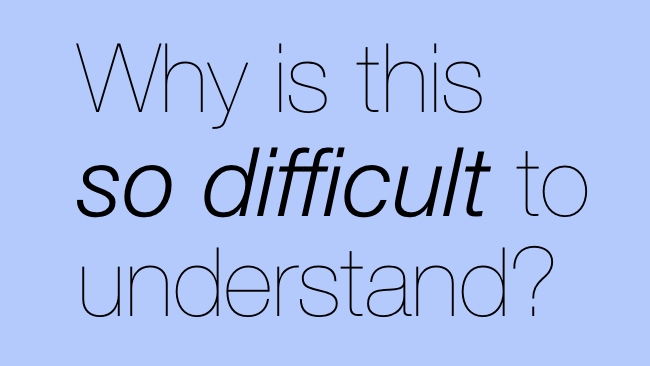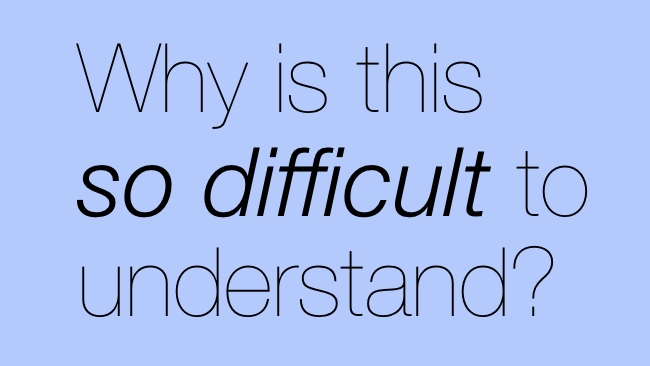
 Music Licensing
Music Licensing
Understanding the rules, regulations and challenges around music licensing for films is enough to send the sanest people completely round the bend. Here's what Phil Rhodes thinks about this contentious and - it would seem - utterly confusing subject
It isn't often particularly difficult to find examples of regulations failing to keep up with changes in society, especially where technology is concerned. It's also nothing new to discover yet another way in which the internet is challenging the ways in which we've traditionally thought about copyright. Many of those ways revolve around the fact that the internet – by which we invariably mean the world wide web in a consumer context, with a few caveats – is intrinsically a broadcast medium, and one of greater reach than terrestrial or even single-satellite broadcasting could ever hope to achieve. More important than that, on the rights-management front at least, is the unprecedented way in which the web is a bidirectional broadcast medium. None has ever existed before, at least not with anything approaching the same degree of ability for the audience to respond on equal terms with the broadcaster.
This was strictly speaking true before YouTube, Vimeo and the advent of online distributors like Netflix, but it is far more common now. What effect this is going to have on the traditional model of broadcasting is of course a hotly-debated topic at the moment; I have no idea, but I suspect we might see more than a few smartly-suited television executives looking glum over the next few years.
Either way, one of the ways in which the democratisation of broadcast media makes life interesting – by which we mean complicated – is in the realm of music licensing. Gaining permission to use a piece of popular music to promote a product or service has always been a complicated and expensive process with no guaranteed happy ending, and it remains so; one might wonder at why it has to be so difficult, although there's no controversy over who is helped by the fact that it costs a lot of money. As such, and perhaps particularly importantly given the rise of user-generated audiovisual content, there has been a visible increase in the scale of provision of stock media, particularly music. Where library music might once have been a realm of slightly embarrassing Bontempi organ tunes and molar-eroding lift music, powerhouses like Audio Network now produce full orchestral cues which rival Hollywood soundtracks and actually deserve categorisation under titles like “Cinematic Action”.
On one hand, this is good. Quality is often high, and each track is typically available as a series of different mixes, providing options for editors to use something that was recorded with a major symphony orchestra, if that's what you're into. A huge range of material is available and prices are reasonable, around £95 for tracks around four minutes in length for work that will be seen online, with smaller fees typical for various sub-mixes and stings. Okay; you might conceivably discover your carefully-chosen track being used for a prominent movie trailer at the same time – this once happened to me, to the chagrin of everyone involved – but the price-to-performance ratio is otherwise sky high and it could hardly be easier to organise.
Although – actually, perhaps it isn't quite that easy. Stock music libraries work hard to try and turn the traditionally painful process of researching and paying for licenses into a simple credit-card transaction, and as far as their own bookkeeping goes, nothing more is required. What complicates this situation is the fact that in most parts of the world there exist collection societies whose role is, ostensibly, to collect royalty fees from people who use music in a variety of situations, and those societies generally ask for fees in addition to any fee paid to a stock music library.
This is where it gets confusing
It can be very difficult to determine exactly which schedule of fees applies in which circumstance. In the UK, an organisation called PRS for Music runs the show, although the part of the organisation that specifically deals with licensing material for media production is called MCPS, and was at one time a separate organisation. The PRS (by which name we'll henceforth refer to the entire organisation) has a website describing the various situations under which, for instance, a web series might reasonably be considered a “film” just like any theatrically released feature, a “mobile/online” production, or perhaps as “online and mobile (non-advertising).” I might have to choose between possibly “streamed programming”, or “online films.” Or – and I promise I'm not making this up - “online films all sites download” or “online and mobile non-advertising all sites streamed programming and webcasting.” If I were to cut a trailer, which the organisation seems to consider advertising and therefore exacts higher fees, the only place they're mentioned is under full-blown feature films, whereupon I might have to pay £40 for thirty seconds of music (plus the library's fee) for the use of the music in a production, but something like one hundred and twelve times more money to use it in a trailer. OK, these rates are clearly set up for upscale, multimillion-dollar American feature films, but right now the main problem is not actually the level of fee charged, it's simply figuring out what fees might actually apply. Several weeks ago, to ensure I was being entirely fair, I sent email to PRS asking for further information, both in view of a production I'm working on and to support this article. I haven't yet received a reply.
I wish cameramen, motion graphics artists, animators, colorists, and other trades had enjoyed the same degree of legal advice when the rules were drawn up, and we too might enjoy, say, a fee to shoot news, and another fee to allow it to be broadcast, and another fee to allow people to watch that broadcast, which is effectively the situation that PRS and MCPS exists to enforce with regard to music. But as I say, that's not really the objection. The fees are generally affordable. The problem is that the schedule of fees is so very highly complicated, ambiguously described and poorly explained that it is currently difficult for producers in any part of the industry other than the most traditional to legally use PRS-controlled music at all. Regardless of the financial implications, it is difficult, even with the best intentions, to follow the rules with any confidence that one is doing so correctly. Guessing and hoping is hardly a workable approach in a situation where mistakes could make it legally impossible to distribute the finished production.
There are alternatives. It is possible to find musicians who will agree to work outside the aegis of PRS, with the result that no fees are owed, the music is produced for a set cost and can be used without limitation. In the case of filmmaking, this means that the composer and any musicians are employed on exactly the same basis as the rest of the cast and crew (where actors aren't being paid repeat fees, which usually they aren't). This is easier to administer, although it does generally mean that those soaring orchestral scores are affordable only to productions who can fund a symphony orchestra for a few days.
My inexperience as a producer is probably part of the problem here, and presumably once the new-media approaches to making and distributing film and TV material are more established it'll be easier to learn how it all works, but I'm not sure that it should really be that difficult in the first place. I think developments such as Netflix and their famous production of House of Cards for an online premiere, plus the YouTube auteurs who make a living doing it, are interesting, and could allow us to avoid many of the problems of advertising-funded television – but I hope that organisations such as the PRS can catch up quickly and make things easier to arrange.
Tags: Business


Comments